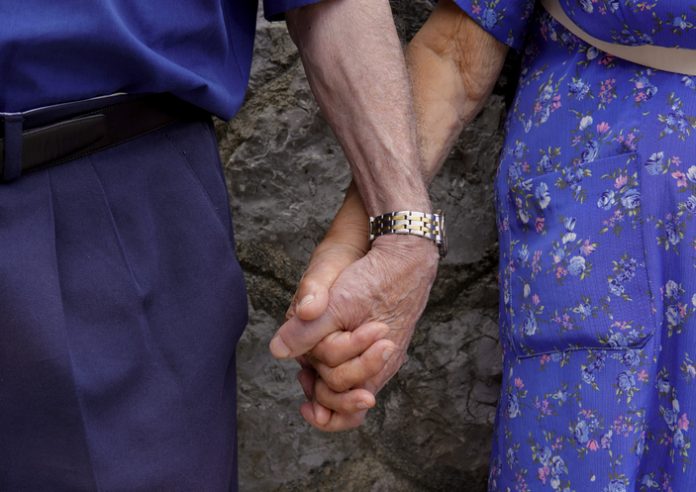An Australian-first study has lifted the lid on how couples living with rheumatoid arthritis cope with the debilitating disease finding that those who cope with problems together had less psychological distress and better relationships.
The study, published in The Journal of Rheumatology examined dyadic coping – when a couple engages in joint problem solving, joint information gathering, or the sharing of feelings and mutual commitment – from both partners’ perspectives using a sample of 163 couples.
“Dyadic coping, the process of coping that transpires between couples challenged by one partner’s illness, is an important predictor of disease adjustment and patient well-being,” says lead author Dr Manasi Murthy Mittinty from the College of Medicine and Public Health.
“Dyadic coping contributes to a sense of togetherness, encouraging couples to develop strategies as a unit to respond to stressful events, and it represents a protective factor for minimising the risk of divorce.
“Working together as a couple is crucial for managing the challenges they face when one partner has an illness, particularly in rheumatoid arthritis.”
Rheumatoid arthritis (RA) is an autoimmune condition that can cause irreversible tissue damage, progressive deformity and pain. Approximately 18 million people worldwide are living with RA, including nearly 456,000 Australians.
Although management of RA has improved dramatically due to biologics, some patients are still confronted by severe physical pain and stiffness and about 35 per cent of people report experiencing mental and behavioural conditions, such as bipolar disorder, mania and anxiety disorder.
“We found that supportive dyadic coping leads to lower depression, anxiety, and stress for patients, as well as improved relationship quality. In contrast, negative dyadic coping increases psychological distress and reduces relationship quality for both partners,” says Dr Mittinty.
“By examining the interpersonal dynamics of couples grappling with chronic disease, we hope to significantly improve the quality of life for patients living with rheumatoid arthritis and their spouse.”
The study is the first in Australia to report dyadic coping from the perspective of both participants with RA and their spouses.
RA patients and their spouses were invited to participate in an online survey study if they were more than 18 years old and had lived together for more than a year. The survey included the Chronic Pain Grade Scale, Dyadic Coping Inventory, Depression Anxiety Stress Scale, and Dyadic Adjustment Scale.
“The results underscore the interconnected nature of dyadic coping, highlighting the need to consider both viewpoints in understanding its impact on couples.
“For decades, the focus has been limited to reducing patients’ illness-related distress and improving patient outcomes. More recently, scientists have adopted a new approach into understanding how illness in a spouse can affect the couple’s relationship and the other spouse’s well-being.
“Our findings demonstrate the reciprocal nature of dyadic coping that transpires between patients with RA and their spouses and showcases that integrating dyadic coping training in disease management may be a valuable resource for enhanced mental health outcomes and relationship quality of couples,” she adds.
The article, ‘Interpersonal Process of Dyadic Coping in Rheumatoid Arthritis: A Perspective From the Australian Rheumatology Association Database’, by Manasi M. Mittinty, Murthy N. Mittinty, Rachelle Buchbinder, Marissa Lassere, Vibhasha Chand, Samuel Whittle, Lyn March and Catherine Hill was published in The Journal of Rheumatology. DOI: 10.3899/jrheum.2023-0664










